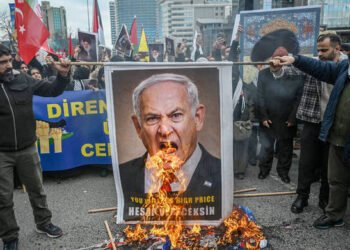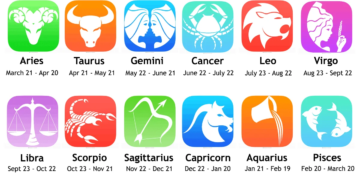By Ghulam Haider
The dust has settled and the results are in: Argentina won their third FIFA World Cup, lifting the trophy after 36 years. Another no. 10 and legend of football clinched the title for his own country. But this hasn’t been just the biggest satisfaction for Leo Messi, but it might very well be his last tournament on the international spotlight.
And it’s not alone: Messi is 35 years-old, at his fifth FIFA World Cup. Just like Cristiano Ronaldo, who will be 38 in February. Or Luka Modrić, who made the cut for Croatia in 2006 at just 20. Looking back at that tournament, Germany 2006 was the beginning of this wild ride. But there was something more.
-
The 2022 FIFA World Cup is over and prepare to salute many heroes from the last decade
-
Leo Messi, Cristiano Ronaldo and Luka Modrić might be at their last tournament on the global stage
-
The edition where everything began – Germany 2006 – was as well a rite of passage for many iconic figures
That FIFA World Cup edition was the start for two other five-timers – Mexico’s Andrés Guardado and Guillermo Ochoa. Nevertheless, it represented the final dance for many iconic figures in the footballing landscape. The list is long and full of story.
Hosts Germany had for the last time Oliver Kahn and Michael Ballack, the dynamic duo who brought Die Nationalmannschaft to the final of the previous tournament. Kahn didn’t play as a starter in that edition (Jens Lehmann was picked as the no. 1), while captain Ballack was still around in 2010, but an injury kept him out from taking part into the South Africa-based event.
What about England, instead? The 2006 FIFA World Cup witnessed for the last time both David Beckham and Michael Owen. The winger and the striker wrote important pages of the Three Lions’ World Cup history; in particular, the England’s captain scored in three different editions (1998, 2002, and 2006).
Brazil didn’t confirm themselves as champions after winning it all in 2002, but their iconic team had a last chance to compete at the maximum level. Cafu reached 20 games played in the FIFA World Cup; Ronaldo established the new record for goals scored in the history of the finals (15, before Miroslav Klose took him from him eight years later). It was also the last appearance for players like Roberto Carlos, Emerson, and Ronaldinho.
In the end, the final was between France and Italy. Just like Brazil, Les Blues had a full generation – the same who won the 1998 edition as hosts – ready for taking a final shot at the crown. Majestic interpreters brought physically the national team to the final act: above all, Zinedine Zidane was the most notable, playing on the same level of 1998.
But you can’t forget the iconic Fabien Barthez in goal, and Lilian Thuram in defense, the spinal cord of that golden era between the end of the 90s and the beginning of 2000s. Midfielder Patrick Vieira and forward David Trezeguet proceeded with their national team career after Germany 2006, but that was their last appearance as well in the FIFA World Cup.
And what about Italy? Their roster for the 2006 tournament was the right mix between household names from their 90s brilliance and new players ready to step for the Azzurri. Among the names in the first category, some of those interpreters went through a final apperances on the biggest stage yet.
Alessandro Del Piero played his third and final FIFA World Cup, scoring a decisive goal in the semifinal against Germany. Another milestone was set by Francesco Totti, who clutched the penalty kick against Australia to send Italy to the quarter-finals. Alessandro Nesta has been unfortunate in his three editions, but he can say he’s a World Champion.
But the 2006 FIFA World Cup was also about a multitude of generational players:
-
Ruud van Nistelrooy played his lone edition in 2006, since in 1998 he hadn’t still debuted with the Oranje, in 2002 Netherlands didn’t reach the final stage, and in 2010 he wasn’t called up.
-
Henrik Larsson featured in his third World Cup, scoring again after 1994 and 2002. To this day, he’s still the top-scorer for Sweden in this competition (tied with Kenneth Andersson at five goals).
-
Ali Daei held for a long time the record for the most prolific goalscorer on the international stage with Iran, until Cristiano Ronaldo overcame him in September 2021. He took part into his second event at Germany ’06.
-
Claudio Reyna completed his fourth FIFA World Cup, although United States were knocked out in the Group Stage. “Captain America” was the first American player to feature in the All-Star Team from the tournament (back in ’02).
-
Hidetoshi Nakata played his third and final tournament, quitting football after the final Group Stage game against Brazil. He took the decision of retiring at the age of 29, both from club and international football.
-
Sami Al-Jaber wrote indeed some history pages in Germany, scoring for a third FIFA World Cup (out of four editions played between 1994 and 2006). Salem Al-Dawsari equalled his tally after the 2022 tournament.
And let’s not forget the newly-crowned champions, Argentina. That event saw the Albiceleste playing some celestial football under José Pekerman, but the quarter-finals saw Argentina being knocked-out after a 1-1 draw in the 120 minutes and a loss in the penalty shootout.
Back then, a young Leo Messi began his FIFA World Cup career. It was the lone appearance of Juan Roman Riquelme, the last to have worn the no. 10 of the Albiceleste before Messi. It was the last tournament for Hernán Crespo. And it was the last as well for Pablo Aimar, who today is part of the technical staff of the national team.
It was also the only FIFA World Cup of another player. He was back then a right-back from Deportivo La Coruña, just coming from a six months-loan to West Ham United after eight seasons in Galicia. Pekerman picked him because he was part of the group who won the 1997 FIFA World Youth Championship, alongside Riquelme, Aimar, Walter Samuel, and Esteban Cambiasso.
He played just seven times with the national team. The last one was on June 24th, 2006, when he featured for the whole match in the Round of 16 against Mexico. That someone was Lionel Scaloni, back then a teammate of Leo Messi.







 United Arab Emirates Dirham Exchange Rate
United Arab Emirates Dirham Exchange Rate

